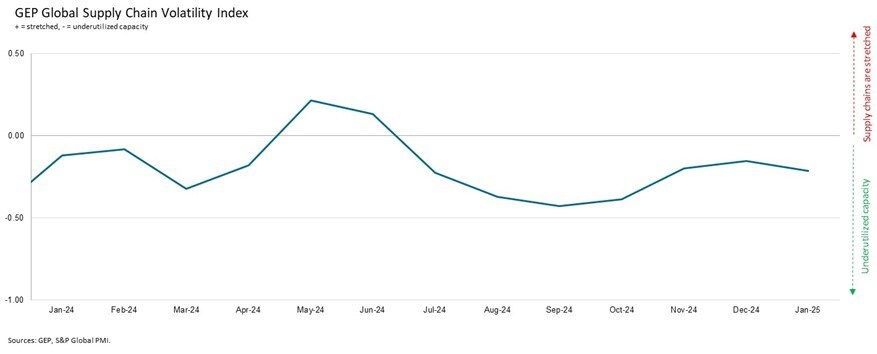Manufacturing Momentum: U.S. Factory Sector Surges in January Amid Rising Economic Optimism

In a groundbreaking analysis of global supply chain dynamics, the GEP Global Supply Chain Volatility Index offers unprecedented insights into the complex world of international trade and logistics. This cutting-edge indicator provides a comprehensive snapshot of current market conditions, tracking critical factors that shape global economic landscapes.
The index delves deep into key performance metrics, including:
• Demand fluctuations
• Critical supply shortages
• Transportation cost trends
• Inventory management challenges
By synthesizing these crucial data points, the GEP index offers businesses and economists a powerful tool for understanding and predicting supply chain complexities. Executives and strategic planners can now gain a more nuanced view of global market pressures, enabling more informed decision-making in an increasingly unpredictable economic environment.
As global markets continue to evolve rapidly, this innovative index stands as a beacon of clarity, helping organizations navigate the intricate web of international supply chain challenges with greater confidence and strategic insight.

